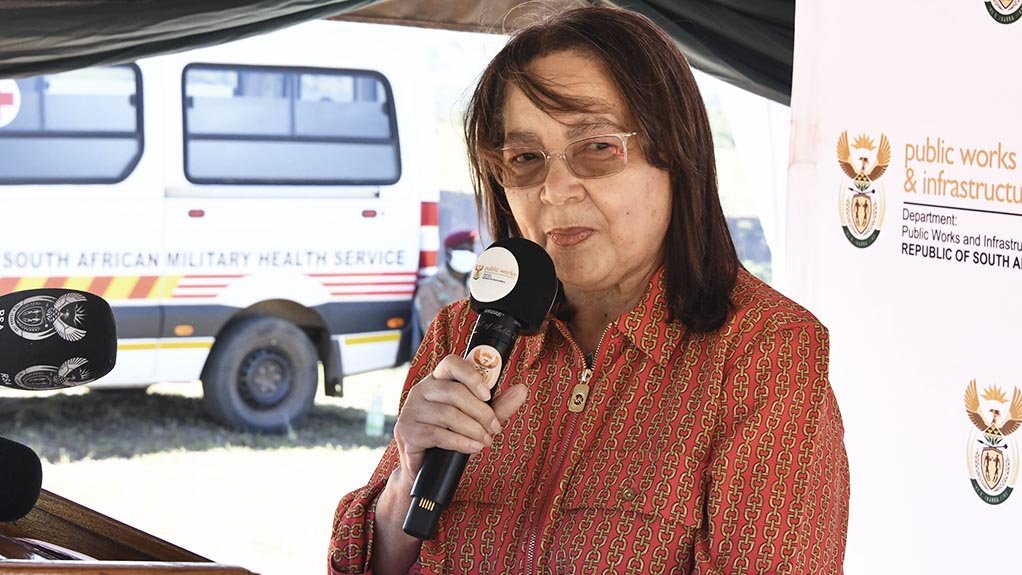THE Department of Public Works and Infrastructure has detailed its lofty plans for digital services and infrastructure in South Africa, including its dream of connecting all citizens to super-fast broadband internet and building an efficient and capable e-government.
The plans are contained in the department’s phase 2 documentation of its National Infrastructure Plan 2050 published for public comment last week.
The documents detail the path the government will follow in realising its major infrastructure projects over the next 30 years.
According to the department, the phase 1 document outlined a vision for the country to achieve universal broadband infrastructure coverage, with an emphasis on achieving ubiquitous high-speed internet.
The phase 2 document promotes broader digital and digitising infrastructure, infused into both the public and private spheres.
Notably, the plan is for a wider ‘smart city’ integration, with digital services spreading beyond main centres – enabled by the private sector, no less – while also establishing effective e-government services in health, education and service delivery. All at an affordable cost.
“All public infrastructure would benefit from digital enablement,” the department said. “While South Africa has made great progress in driving broadband coverage, access has been poor – as has public sector e-enablement.”
To change this, the department said that the government needs to engage with the private sector to build up the technical skills, financing and capabilities to build South Africa into a country ready for a digital world.
Moving toward 2050, the department wants:
- All government buildings are to be connected to fibre-optic high-speed broadband;
- All government buildings to offer low-income users free Wi-Fi;
- There will be a target of “1GB to (the) home” by 2025/6;
- An accelerated focus on enhancing service delivery with e-health and e-education;
- Universal access and public sector connectivity, relying on the government as the procure and regulator, with SOEs and the private sector implementing;
- Digitisation of transport, energy and water infrastructure.
Accomplishing this will require significant funding and buy-in from the private sector, the department said. It is envisioned that between R30 billion and R80 billion will be raised to roll out government broadband and services over the medium term.
It will also take a lot to convince private companies to facilitate services to areas that are not profitable.
There will be special vehicles to promote blended finance in public broadband infrastructure, it said, giving added incentives for de-risking private sector investments – particularly for affordable services in rural areas.
The allowable period for public procurement of telecom companies and digital services will also be lengthened to enable private provision in ways that also deliver services to underserved communities, monetised over 10 to 20 years.
The government will also consider a special tax or grant to enable the deployment of broadband into low-income areas that would not traditionally be feasible.
Education is also a big factor in the plans, the department said, with school connectivity by 2023 being only the start of addressing the need for further education and training in ICT skills.
The department said that basic digital and data literacy skills need to be developed across the population, and more jobs in the field need to be created, especially for the youth.
Over the next three years, the department wants to meet these goals:
- Arrangements required to enable private participation in public interest digital delivery will be in place by 2022/23. This includes a proposed Broadband Fund;
- 80% of public buildings, especially schools, health facilities and the police, will be connected by 2024/25;
- The government will identify three priority pilots where partnerships are used to introduce overarching digital modernisation (ie, education, policing, health, water, smart cities);
- A population registry will be completed in 2022/23;
- A data centre and cloud strategy will be completed in 2022/23;
- Smart city policies will be considered;
- Three major service delivery innovation pilots will be launched, such as the smart mobility Minibus Taxi Blue Dot programme or innovations in smart water metering, e-education or e-health solutions.
Additional reporting by Business Tech

